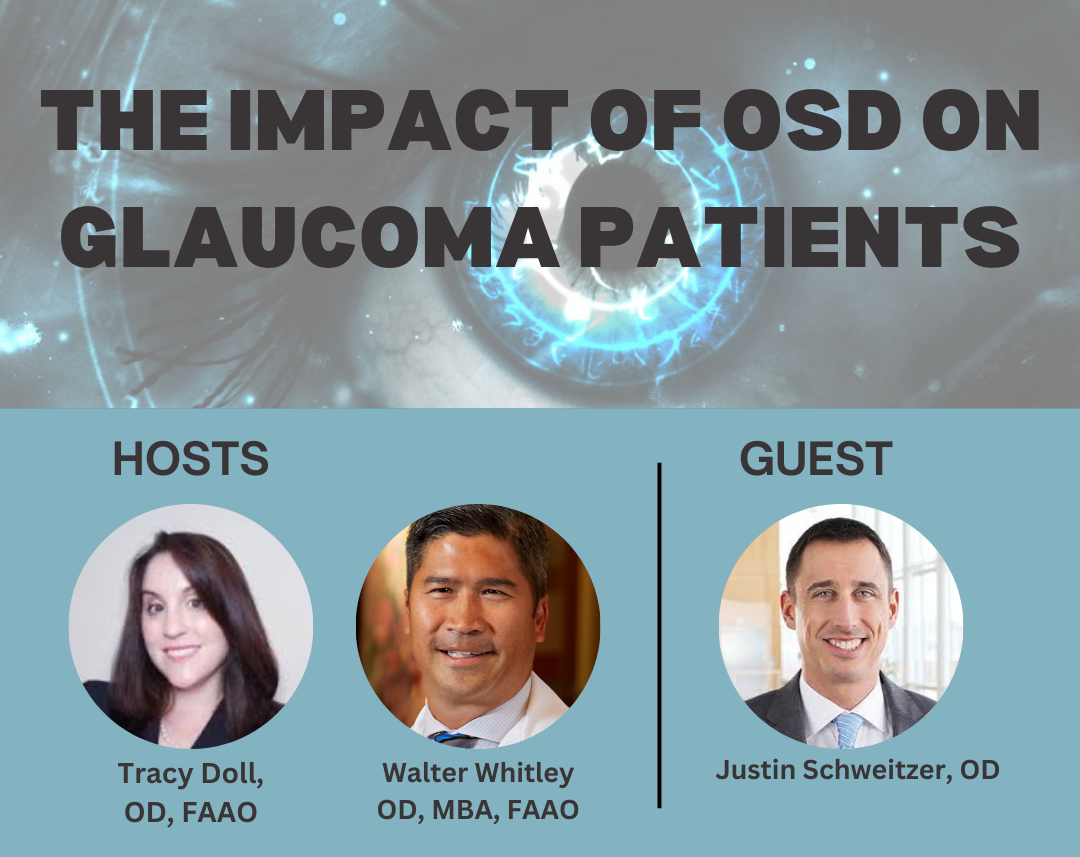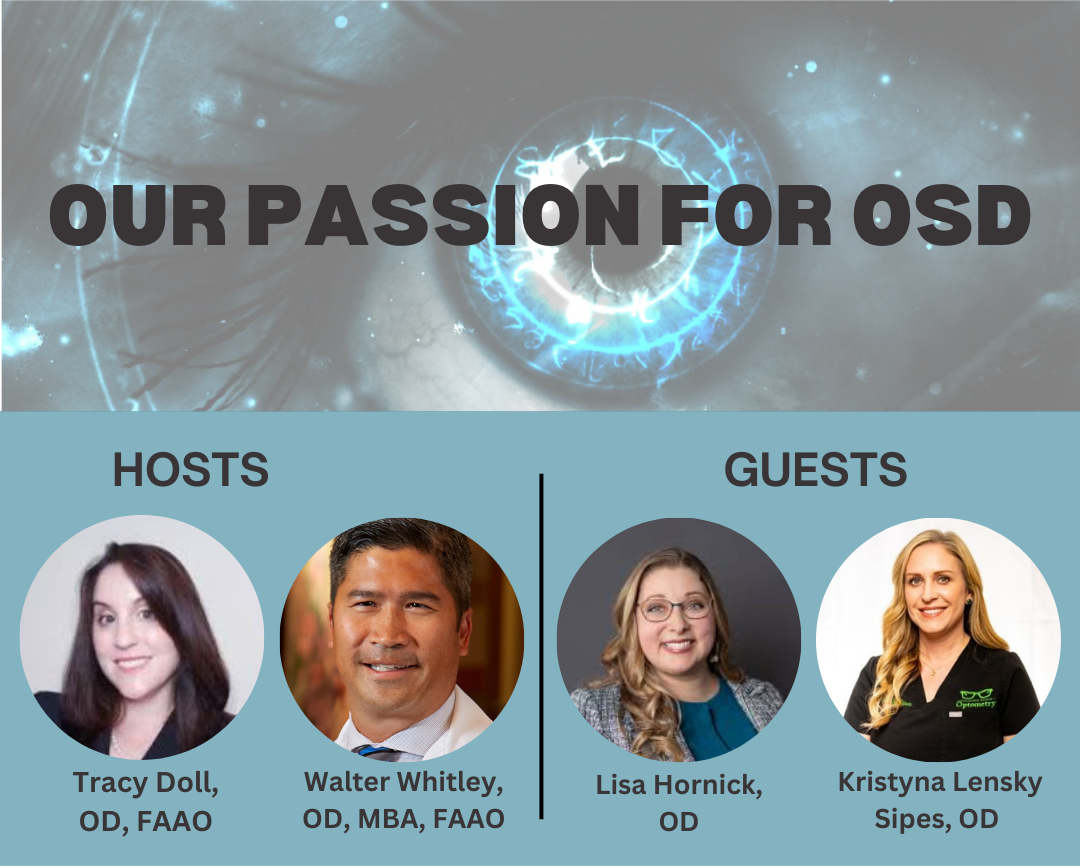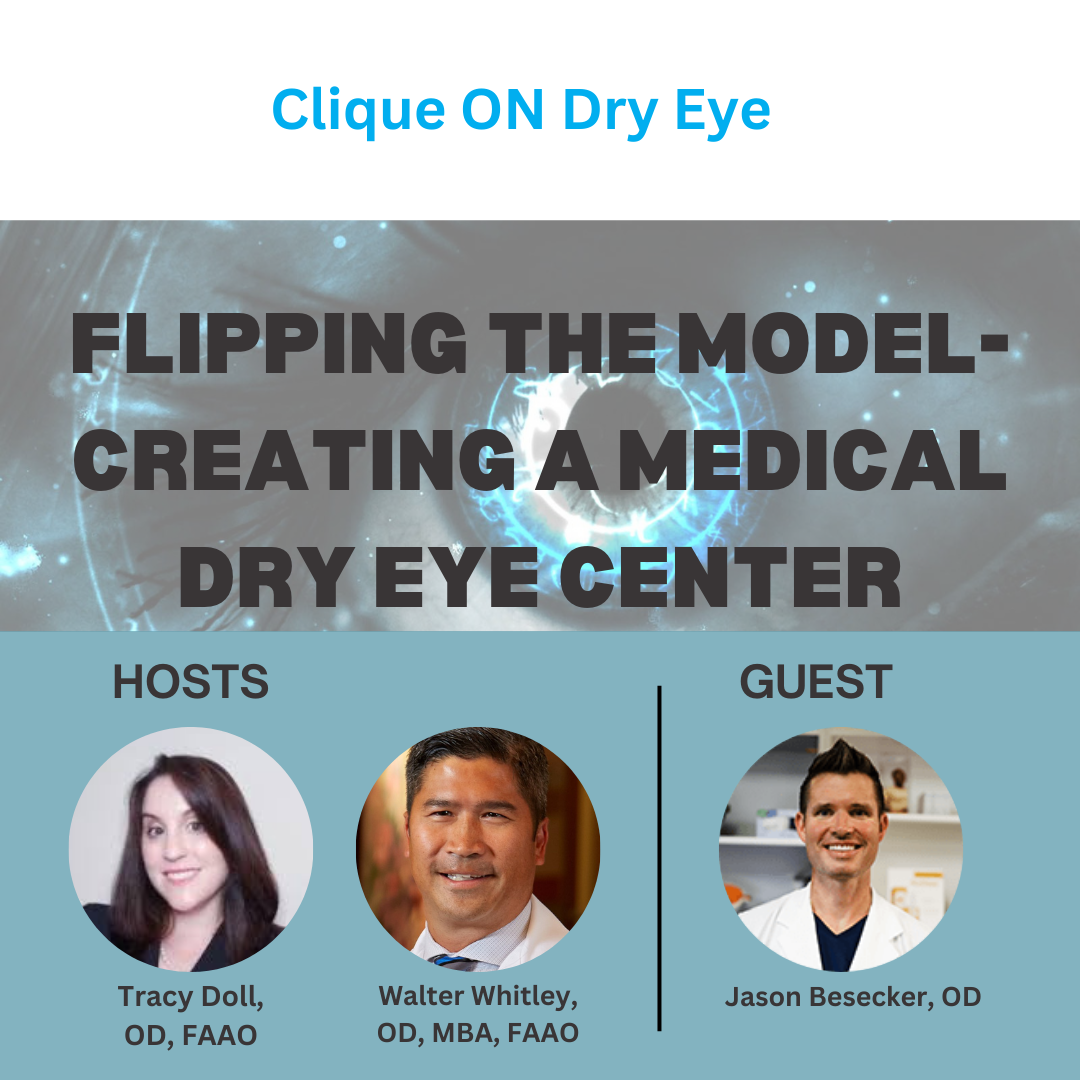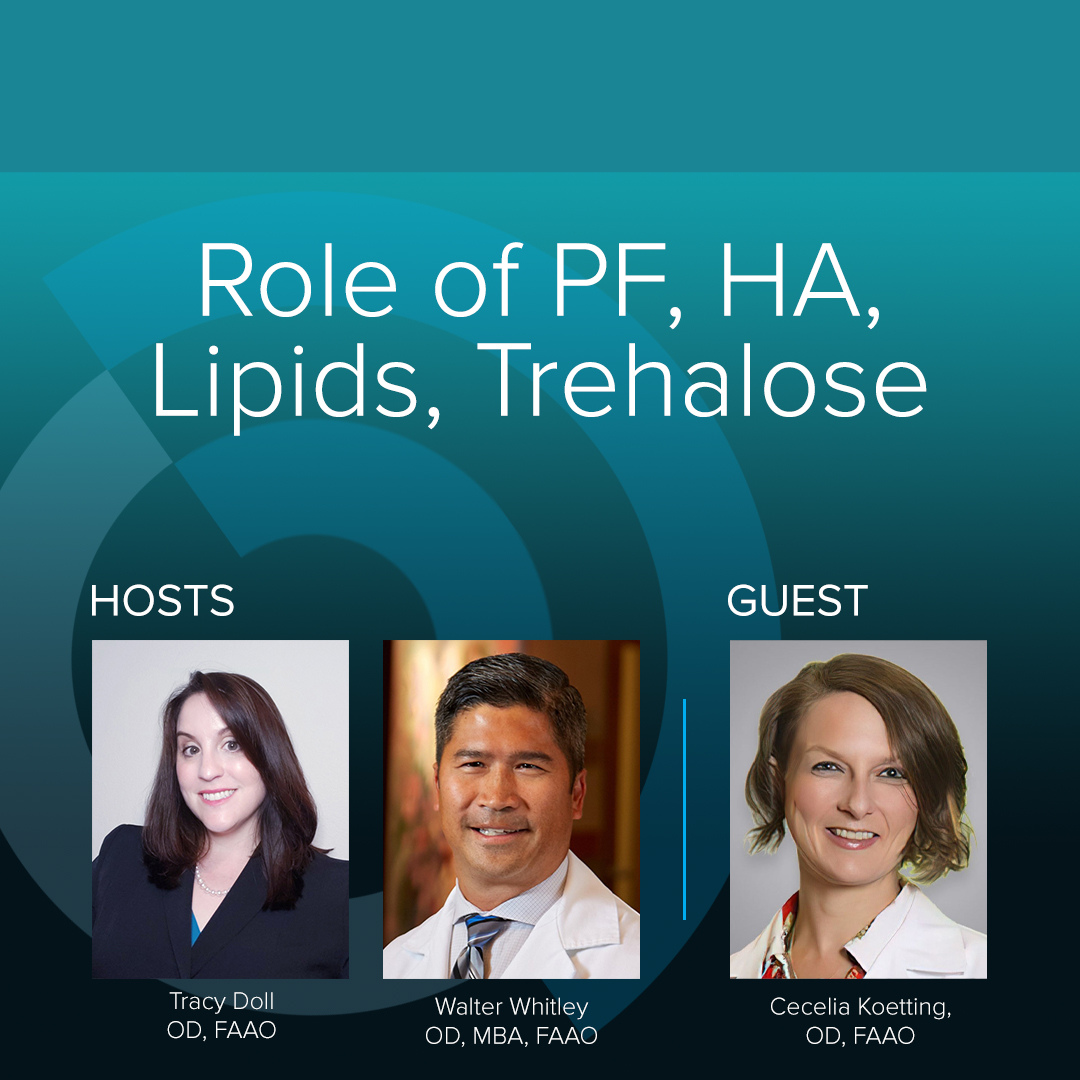Episode Transcript
[00:00:00] Speaker A: Welcome to the Dry Eye podcast series. Click on Dry Eye, your insider paths to the most exclusive dry eye topics. The series will raise awareness about the current and future state of ocular surface disease. The podcast will focus on a variety of topics. Before we get to our next episode, here's a quick word from our sponsor.
[00:00:21] Speaker B: This episode of Dry Eye Coach is sponsored by Tea Pharma, Inc. The makers of Ivisia and Iuza. For more information on Tea Pharma, Incs portfolio, please visit teaharmainc.com. that's Thea pharmainc.com.
[00:00:39] Speaker C: Hey, everybody, thanks for tuning in today. We have our good friend Ahmad Fami here from Minnesota Eye consultants to talk about preservatives, friend or foe, when it comes to topical medications. And so hey, welcome, Ahmad.
[00:00:53] Speaker D: Thanks. Thanks so much for having me, you guys. This is great. I love the interaction. You guys are awesome.
[00:00:59] Speaker A: Tell us a little bit more about where you practice so that our listeners can get to know you.
[00:01:02] Speaker D: Sure. I am at Minnesota Eye Consultants. It's a high surgical volume practice. I've been there for a long time, and I see a lot of glaucoma, ocular surface disease, and perioperative care of eye surgery. So it's a really fun group. It's an ophthalmology optometry group where we have a lot of fun and co manage a lot of patients together. So it's a great, great environment.
[00:01:28] Speaker C: So with all those things, why dry eye? Good ocular?
[00:01:31] Speaker D: It's just kind of like a default. You know? If you're treating glaucoma, you're treating dry eye. And it's just one of those things that just kind of kept getting built, building up. And I have a passion for it because I think once you kind of really make an impact on somebody's life in this condition, you can really get hooked on it. And it's very interesting. There's a lot of innovation and, yeah, really improving the quality of life of these patients is really rewarding. So I enjoy it.
[00:02:00] Speaker C: All right, we got a lot of different questions for you, but I know you just completed the twin Cities OSD symposia. Can you tell our viewers about this?
[00:02:08] Speaker D: Yeah, it was awesome. It was our first year back since the global pandemic, and I remember just like yesterday when we needed to cancel the whole thing in 2020. So it was really nice to be back and really just kind of focusing on workshops and getting our hands on things. We had a fantastic faculty, of course, including you, Walt. It was really awesome. And I think it's time for us to really dig deep into ocular surface disease. There are a lot of interesting studies and just getting the experts up there and debating things and doing it at a very high level. So that's the whole idea behind the meeting.
And so I'm really excited about it. Next year is going to be September 6 through the 8th, so mark your calendars. It's going to be a lot of fun.
[00:02:54] Speaker C: It was fun. That was the first time I think I was the negative nelly on the panel. I've never been that person. I'm always like, yeah, I love this, I love this. But anyways, but that's what was great, is having not everyone's in agreement on everything.
Who's the target audience? Is it someone interested in dry, is it more moderate, is more advanced, or I. Anyone with a passion for dry eye?
[00:03:16] Speaker D: Yeah, it's really anyone. But really, it started because I had a lot of colleagues actually reaching out to me saying, look, I've been tasked with really taking our ocular surface disease line of treatment to the next level. I work with ophthalmologists, and I'm really looking for some really something that's going to enable me to take this information and then on Monday be able to apply it and really do a high level, really ramping up their OSD line of service. So that ends up being the target audience. It's a very well educated audience. I learned just as much from our colleagues that are in attendance. And so that's the fun part.
[00:03:58] Speaker A: Thank you for doing such a great work in the space and being a great resource for other doctors who really want to try to get a handle on ocular surface dryness that don't always know where to start. So thanks for creating that event and making it available.
We're so happy that here's our expert. So we want to know, why does preservative free matter?
[00:04:18] Speaker D: Well, I mean, I think that, again, as I mentioned earlier, if you're the biggest example, I think of that is glaucoma treatment. And so preservatives matter because we know that when we need to use preservatives and glaucoma medications, two main things can happen, of course, decrease in goblet cell density and increased inflammatory markers. So there's some studies that have helped us that have demonstrated that even just one medication for using one pressure lowering medication for one year, the group of the incidence of decreased goblet cell density goes from about 2% to 30%. And the same thing with MMP nine production that goes from about 9% to about 37%. And that's just one medication for one year. So we know that these medications that are preserved are useful in lowering the pressure and getting us to a reasonable target range. But we just have to be careful that the risks that we still have a favorable profile as far as inflammatory changes and ocular surface changes, where I can use a preservative free pressure lowering method or early migs intervention in treating glaucoma, that's always really helpful.
[00:05:38] Speaker A: And what about conditions outside of glaucoma? Are you choosing more preservative free options in those cases as well?
[00:05:44] Speaker D: As well, yeah. So, I mean, if you're an ocular surface disease, if you have a passion for it, you know, that that's kind of where a lot of the preservative free options started. And so, you know, in the dry eye realm, we started making the Medicaid, most commonly used medications preservative free because you're treating ocular surface disease. So it made sense to do that, and it kind of spilled over into glaucoma. But, for example, most of the antihistaminic eye drops that are out there are still preserved.
You just have to really balance the inflammatory changes, really understand what the root cause of it is. There are some patients that do just fine with a medication that has bak in it, but you just have to careful. For example, every glaucoma patient really should have a very thorough ocular surface disease evaluation. Um, you know, and so, um, so it's not so much. Well, you know, you shouldn't really use preservatives, period, because there are benefits. You know, we know that, uh, you know, preservatives do really, uh, improve the sterility of the medications for the life. Lifeline of the. The life of the medication. And that's really important, you know, so. And the other thing in. In glaucoma, also bak was another benefit of that, is it really helped with, actually penetrance through the cornea. And so it does affect cell to cell adhesion. So if you're getting more of that active ingredient through the cornea and into the aqueous humor, you have a better pressure lowering effect. So there are some benefits to it, but we just have to make sure that we're not causing too much, you know, frankly, collateral damage, if you will.
[00:07:20] Speaker C: Well, you can say the same thing for bacterial infections, right? Because the bak and preservatives can poke holes through the bacterial cell wall and help penetrate and kill the microorganism so you brought up something. You mentioned allergies and top glynihistamine. So I just gave you a dry eye patient with horrible allergies. How do you fix them?
[00:07:42] Speaker D: Orals? No, I'm just kidding.
[00:07:45] Speaker C: Dries about more.
[00:07:46] Speaker D: Great.
[00:07:47] Speaker A: Yeah.
[00:07:47] Speaker D: I mean, I'm just saying that because I had a patient earlier today that's like, oh, my eyes are horrible. I. Super dry, and, yeah, so that's. That's the one of the bigger sort of low hanging fruit to fix. If a patient is on an oral antihistaminic and they don't really have to be on it, or they've been. Just been on it for years and years. How about we. And it's mostly for ocular allergies. How about we just use an eyedrop for that? But that's my main thing, is just to make sure that we're using one of the. I mean, all of the antihistaminics, in my experience, are very effective within about three minutes.
And so I feel very comfortable having patients using antihistaminics for a long time. And here in Minnesota, I don't know about where you guys are practicing, but here in Minnesota, the allergy season is definitely, um, you know, longer. Um, and, um, you know, so we're never really, you know, out of the woods here, even in the cold, as the. As our patients kind of turn on their furnace and there's maybe more dust and mold and things like that. So.
So that's. I typically use a topical antihistaminic, and I just had a patient today that has been using a topical antihistaminic for a while. And. And even though, you know, those patients will sometimes have a flare up, and so using a softer steroid for a few weeks is helpful in those patients.
[00:09:07] Speaker C: Tracy, I saw you nodding over there with your allergies up to the northwest. How are you addressing it?
[00:09:13] Speaker A: Well, you know how it is. You went to school up here. We live in the Willamette valley. It's one of the most green, gorgeous, beautiful places you possibly can, can find. But, yeah, you have to weigh what is the most offensive to the ocular surface. We know that allergies will absolutely kick in the dry eye response, so you have to really get that under control. So I tend to use topicals. Hit it hard for a little bit. If the over the counter antihistamine is not working, then I do love to use a soft steroid for a short period of time. That's what they're there for, to calm these patients down. And get them through their allergic season.
We also know that cyclosporine has a little bit of a chronic effect with atopic cases, so there's lots of different ways to hit allergies.
[00:10:01] Speaker C: Yeah. You know, one thing I've been utilizing is when preserve free keto fin came out so alloy, and so I've been using that. And then anecdotally I learned from my partner John shepherd is using cingular ten milligrams once a day. It is indicated for seasonal urgic rhinitis and so less drying effects, and so have been utilizing that. All right, so you both just mentioned you have, you use steroids, a little soft steroids, whatever. Hard steroids, so preserved. Or do we get them compounded? I mean, because we know there's FDA on label steroids for dry eye flares. And this is a dry eye podcast, so we'll talk about that. But when are you going with that? Or when are you going with a preservative free compounded steroid? Ahmad.
[00:10:45] Speaker D: So I've been using pred helon from compounding pharmacy here, 0.25% pred forte and 0.001% helon. And the main reason for that is I just think patients really can tolerate that better, and I get a pretty darn good anti inflammatory effect with it.
If we're talking about a patient that's mostly ocular surface disease, and they're just refractory to a lot of the things that we've done, and we're kind of throwing the kitchen sink at them, and they just need to be on a steroid eye drop, they automatically become a glaucoma suspect, even though if they're 0.29 and their pressures are healthy and they have a favorable packimetry, I still think of those patients as glaucoma suspects because their pressures can go up on me at any time, I typically want to watch those patients every few months as well to keep monitoring their pressures and their RNFL. I've been having pretty good success with a compounded pred helon, but where this is not effective for some patients, for one reason or another, I like to use lotopredanol.
And again, if this is kind of like a Sjogren's, patients with rheumatoid arthritis and Sjogren's and lupus, and some of these patients that just kind of have this indolent uveitis where they're just never really quiet down, they always need a little bit of a steroid eye drop. Both of those are great options for me.
[00:12:13] Speaker C: Actually, Tracy, I'd love to hear your thoughts on that.
[00:12:17] Speaker A: Yeah, it's all about access. So sometimes compounding pharmacies are not always the most accessible for some of my patients. But I'm definitely going to take a look at the one that you just mentioned. Um, but if I'm using a steroid, I'm usually going in for, you know, outside of those chronic type cases, I'm usually going in, hitting it hard and getting out within a couple of weeks. So most patients can tolerate a little bit of a steroid because the benefits of the steroid calming things down are going to far outweigh the preservative, but it has to be very, very quick.
[00:12:48] Speaker C: Yeah. And if I'm using it typically, it's going to be for induction therapy. And I do prefer the on label because it's FDA approved efficacy and safety profile, and that is with lotopredanol. Doctor Ahmad, so you're using the pred helon, is that what you mentioned?
[00:13:05] Speaker D: Yeah. Yeah.
[00:13:07] Speaker C: What is the longest you kept patients on a preservative free steroid drop? Is this something you keep them on indefinitely? Is it once a day, twice a day, or.
[00:13:15] Speaker D: Yeah, I mean, we do have, of course, a lot of patients that have had like a DSEC or a DMEC or, you know, full thickness corneal transplant that need to be on a glaucoma medication daily for the rest of their life.
So I typically don't have a lot of patients on it indefinitely for ocular surface disease.
But I do have some patients that really need to be on it for about two to three months. We get them quieted down and then we take a little hiatus from it. But those patients that have a corneal transplant will be on it indefinitely.
[00:13:50] Speaker A: That makes good sense.
[00:13:51] Speaker C: So right now, we've been talking about the 12% of dry eye patients that are getting a prescription therapy. We know that. Artificial tears. I see you again, Tracy. We know that artificial tears is most commonly offered treatment. I'm saying offered, it should be prescribed. We should be deliberate on that. We know the majority are preservatives, and I'll let you speak to that. Ahmad, what are your thoughts? What should we be recommending or.
[00:14:22] Speaker D: Yeah, I mean, I definitely think when it comes to ocular surface disease and treating, like the, you know, garden variety, you know, kind of moderate, mild to moderate ocular surface disease definitely make, makes sense. And even the severe patients, I mean, it definitely makes sense to use non preserved options just because there are a lot of great options out there.
And again, if we're understanding that we really need to reestablish the natural order of things and really keep the immunological changes that happen with our immune system and this disrupting that inflammatory cycle, it's better for us not to throw gas on the fire. We just have too many great options right now. It doesn't make sense to use preserved medications. In my experience in the ocular surface disease, mostly ocular surface disease patients.
[00:15:14] Speaker C: So what kind of artificial tear are you prescribing?
Are there certain attributes you're looking at?
[00:15:20] Speaker D: Yeah. And so, you know, I've been using ivisia, and so this is a non preserved, and it has trealose in it, which is a good anti inflammatory. So for those reasons, I like to use that one.
[00:15:38] Speaker C: Crazy.
[00:15:39] Speaker A: Yeah. My patients are also a big fan of that one. I also like that they have a difference in their daytime formula versus their nighttime formula. So the nighttime ones are in vials and the daytime ones are in a preservative free bottle, so patients aren't getting them mixed up. I don't know if that was intentional, but it's really easy for my patients to figure it out and have a good usage with it and stay compliant with getting the right thing at the right time.
[00:16:06] Speaker C: Yeah. Ingredients matter. Lipid based, I think I'm big on that as well. Multi dose. So we have time for one more question, and I will let Tracy ask it about the recent headlines.
[00:16:17] Speaker A: Oh, yes. So there is a push towards going preservative free, but there's been some concerns about preservative free and over the counter eye drops being used for dry in the media lately. Some people are really concerned about their eye safety. What's your opinion on what's going on lately?
[00:16:36] Speaker D: Yeah, it's really interesting. I mean, today there was an article in the Washington Post that cited 26 different medications, mostly kind of the sort of target brand. So Target CV's, Rite Aid, and so some of these non preserved artificial tiers.
The CDC looked at their manufacturing process, and they felt like there was some insanitary conditions in the manufacturing process. And so we know from our previous experience with some of these things, it can be really not just kind of a, well, we have an irritation type problem here, but we have vision threatening problems. We have serious consequences from some of these. So I could understand that patients would be really concerned about that.
What I try to kind of tell my patients is that it's still, this is, it is something that we should be taking seriously. But really, that gives me another opportunity to talk about the signs and symptoms of infection. If you feel like your eyes are uncomfortable, you have redness, some discharge. But it's really important for you to come in and let us take a look at it early. But still, to let them know that there are a lot of very safe, non preserved options out there.
It gives us an opportunity for us to communicate that to the patient and watch them carefully. If they have symptoms, they should come in right away.
[00:18:04] Speaker A: And maybe you'd catch a flare early if it wasn't an infection. So that's really great communication. I like that. Well, we're so thankful that you came back to the podcast and met with us, and this time you're appearing on camera. So we really want to thank you for your time, and I think you gave us a lot to think about in the preservative free realm. So we appreciate you and your friendship. Thank you so much.
[00:18:31] Speaker D: It's my pleasure, you guys, anytime. Thank you.
[00:18:34] Speaker A: Thanks for listening. Join us for our next episode soon. Find us online at www.dryeyecoach.com and all major podcast platforms.




